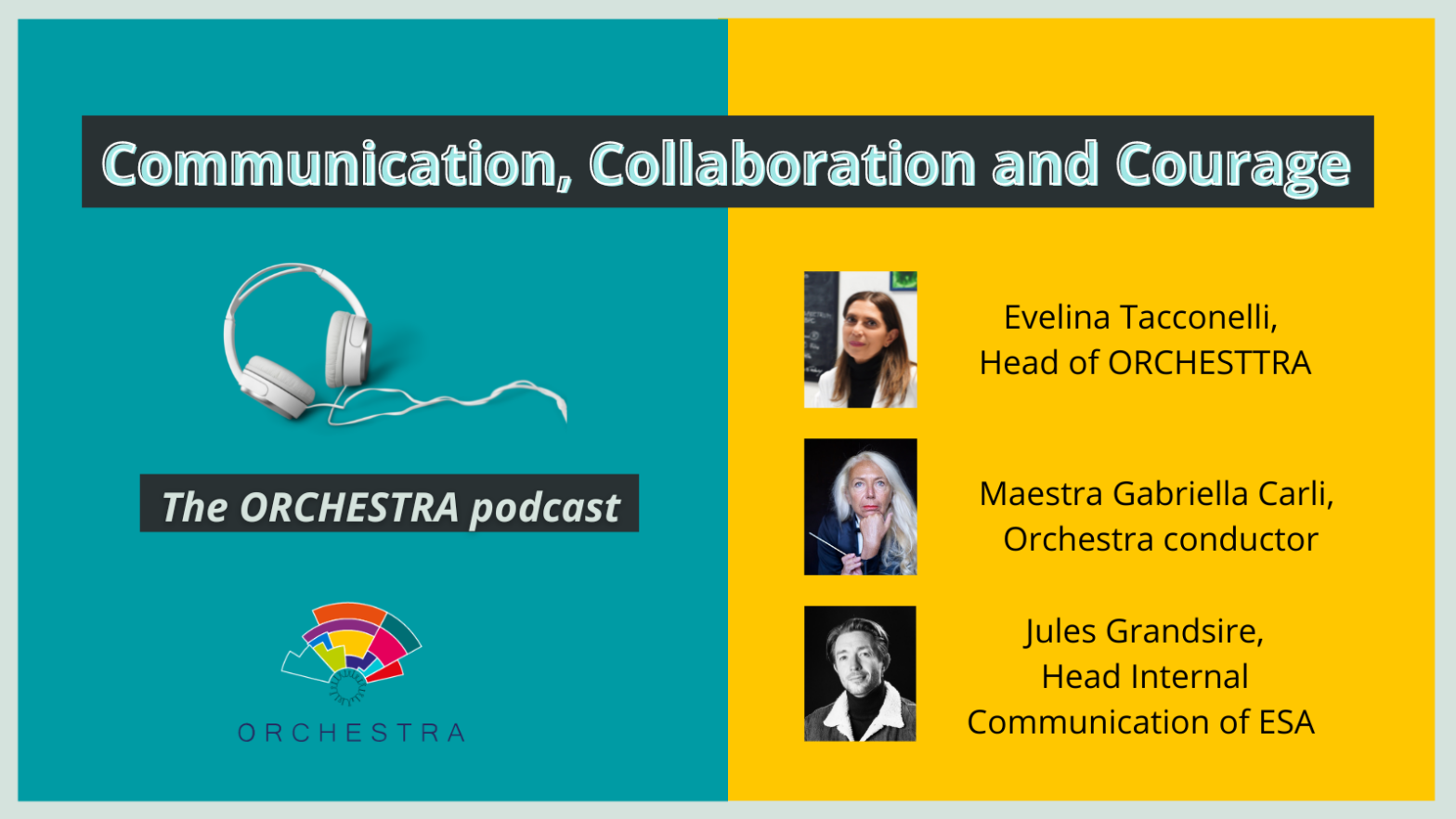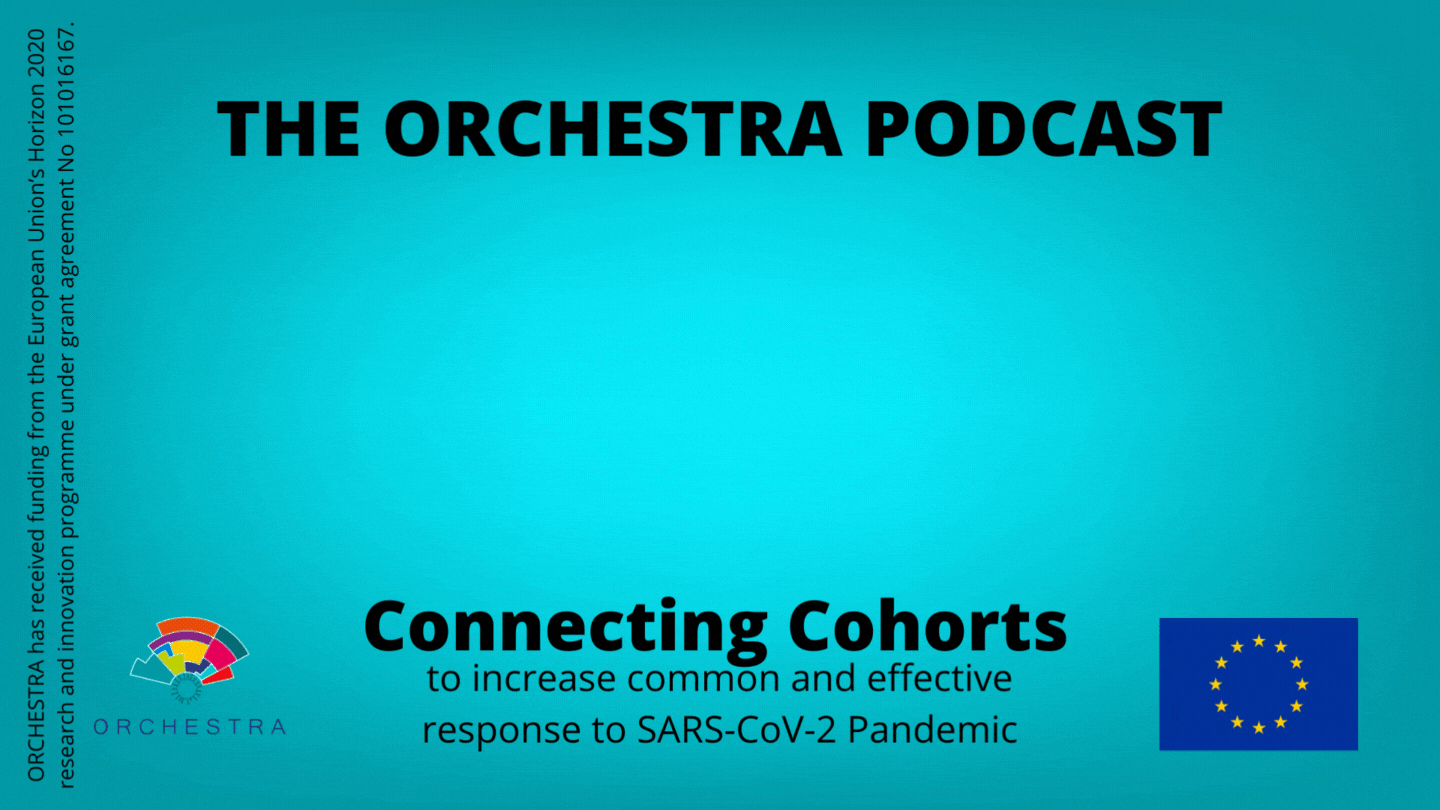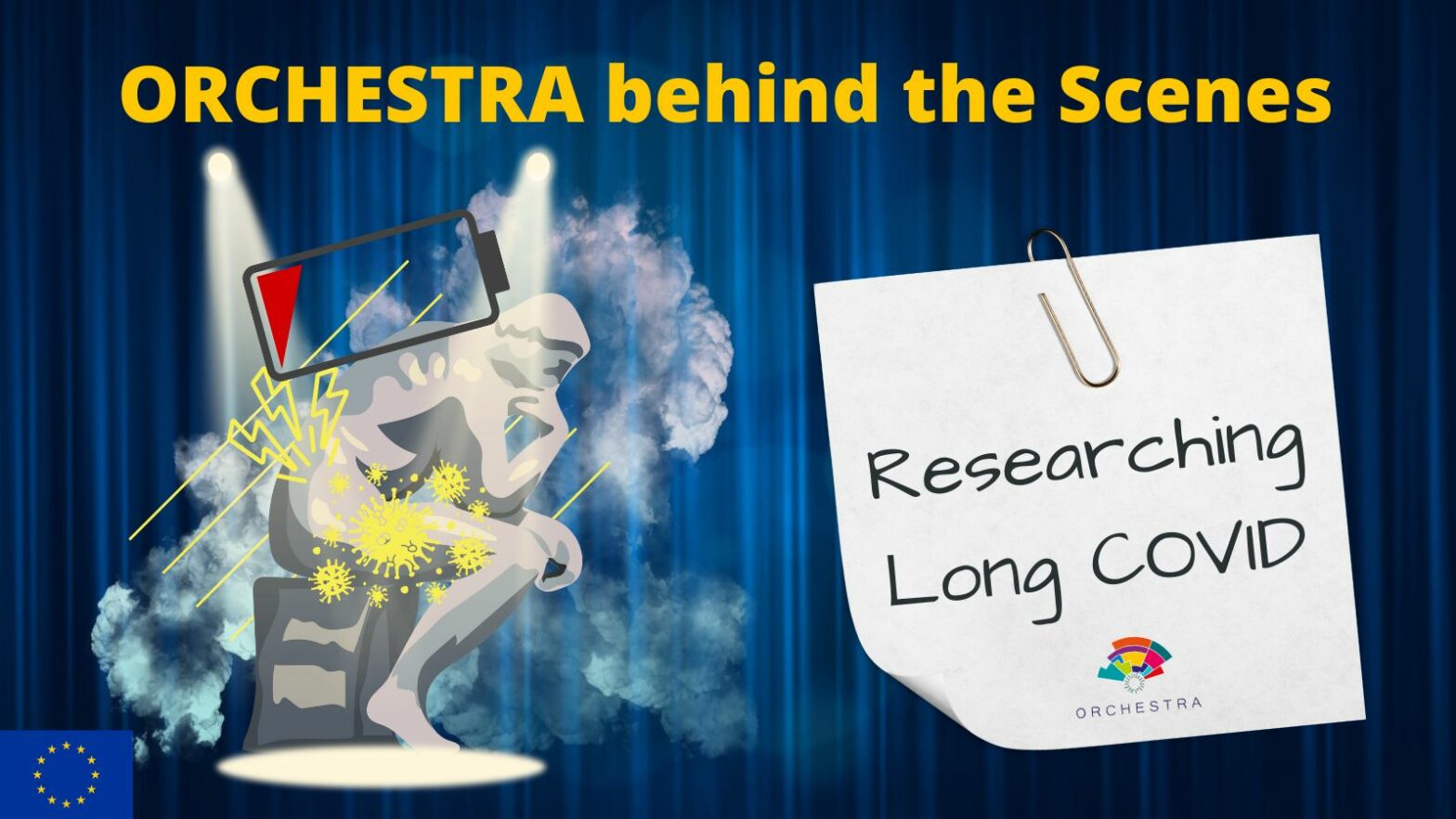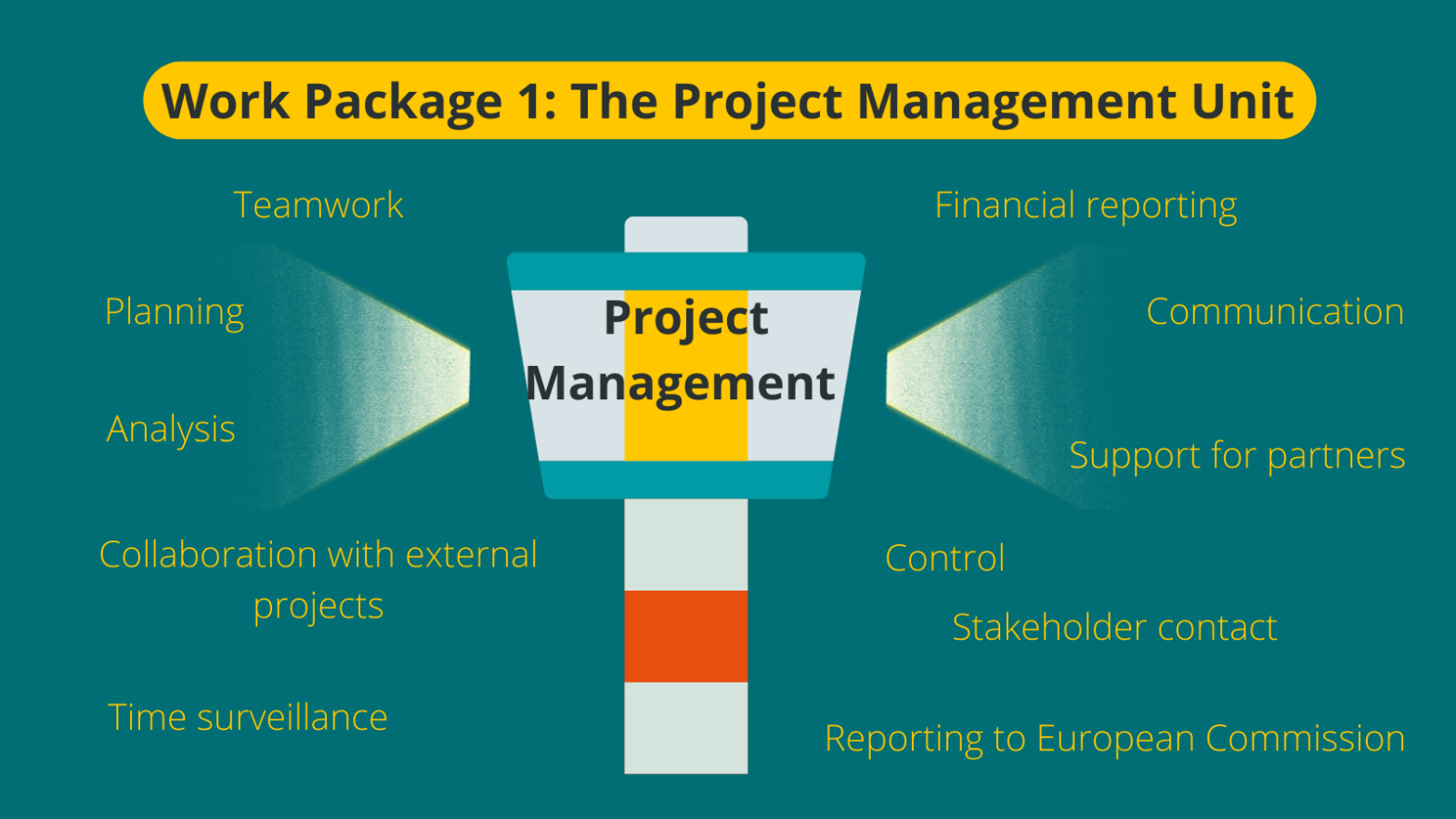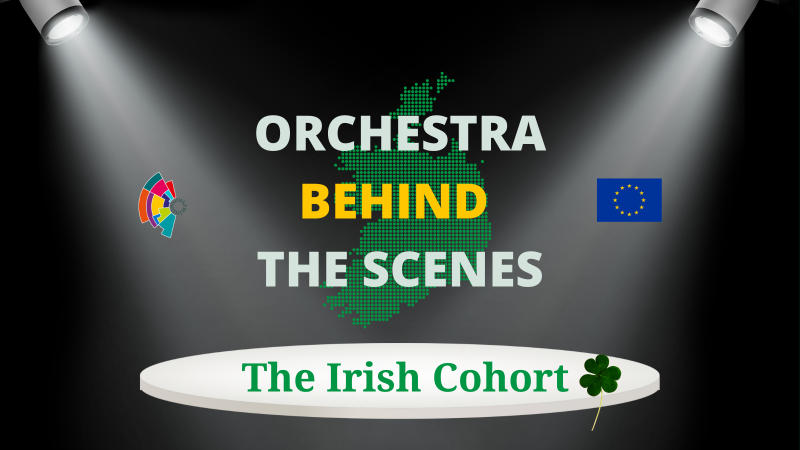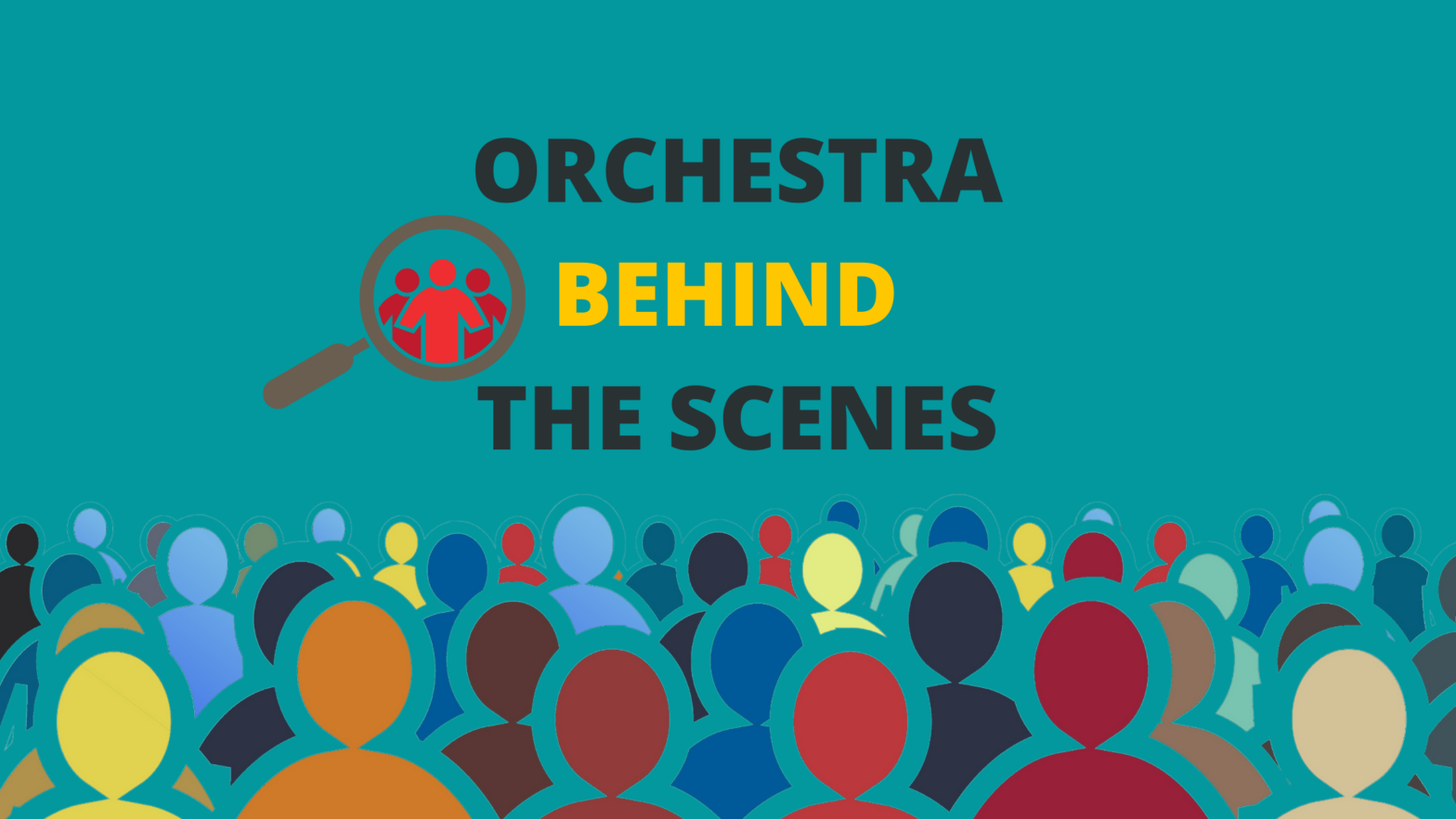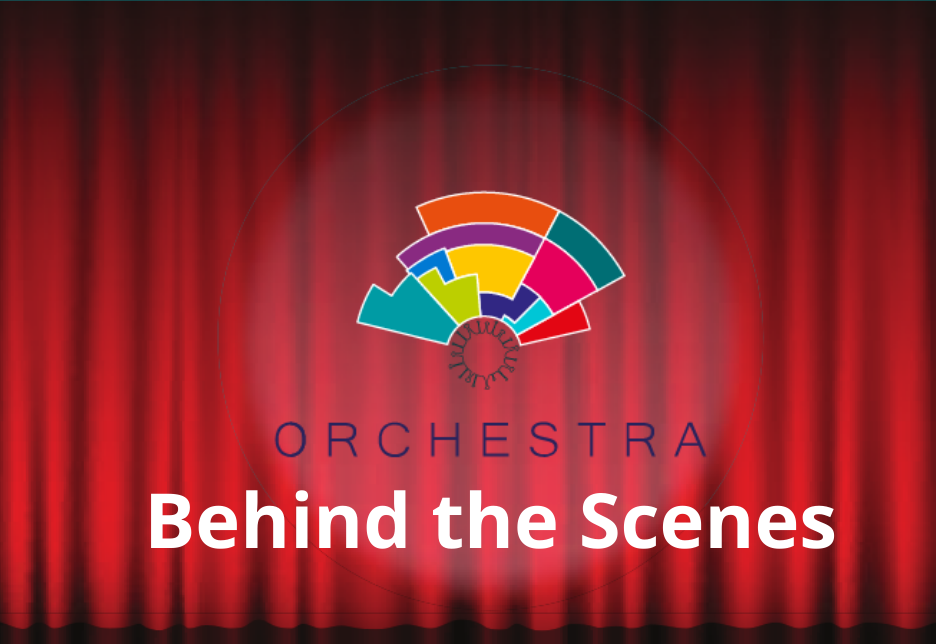Episode 2 – “Communication, Collaboration and Courage” are prerequisite for successful teamwork. We invited three very special guests, who have extremely meaningful and interesting careers, who contribute with their personal insights to “communication, collaboration and courage”: Prof. Evelina Tacconelli, the head of ORCHESTRA, Maestra Gabriella Carli, an international conductor and concert pianist, and Jules Grandsire, Head of all Internal Communication of the European Space Agency (ESA).
Category: blog
The ORCHESTRA-PODCAST: Presenting ORCHESTRA
Episode 1 presents ORCHESTRA and gives an overview of the project and its mission. Nobody knows ORCHESTRA better than Prof. Evelina Tacconelli. She talks about benefits, challenges and how her team convinced her to apply for the European cohort research project on COVID-19. Evelina Tacconelli is the head of ORCHESTRA, professor of infectious diseases at the University of Verona and director of the infectious diseases section at Verona University Hospital. She is a consultant on infectious diseases research of the University of Tübingen, DZIF, the German centre for infection research. She leads several international projects, targeting epidemiological and clinical aspects of antibiotic-resistant infections. Evelina initiated the ORCHESTRA project with her team from the University of Verona.
ORCHESTRA BEHIND THE SCENES 5
Long COVID is affecting large numbers of patients. What needs to be done to help them and how ORCHESTRA can work on clinical solutions is the topic of the interview with Professor Alex W. Friedrich the Medical Director and Chairman of the Board of the University Hospital Münster. Professor Friedrich is a medical specialist with specific expertise in infection prevention and control, lead of Work Package 9 “The global COVID-19 guidance”.
Work Package 1: The Project Management Unit
ORCHESTRA’s mission is to bring together European and international partners in order to create larger cohort research for collaborating on a clearer picture of COVID-19 to find evidence based medical recommendations. 37 partners from 15 countries join work forces to achieve this goal. Only a well organised research infrastructure with common standards can facilitate serious research of this size. International teams of specialists from different professional backgrounds are assigned to eleven work packages – each entrusted with important tasks (which inspired the project’s name ORCHESTRA). Obviously, this endeavour requires a great amount of coordination, which is in the hands of Work Package 1 (WP1), the project management unit.
WP1 is ORCHESTRA’s “ground control” and provides continuous support to the partners in all aspects of project management, supervises adherence to the Grant Agreement, Consortium Agreement and Publication Policy, facilitates the flow of information between the ORCHESTRA partners and the many stakeholders. Currently, WP1 is also working on the internal financial reporting. This is a valuable practice for helping partners monitor their expenditure and it will facilitate partners when it comes to the official financial reporting activity to the European Commission due this summer. The next important task will be the official project reporting to the European Commission, requiring all the partners to report financial expenses and scientific activities performed in the first 18 months of the project. The team of WP1 describes their work challenge: “Coordinating such a big Consortium is a continuous challenge given the changes and adjustments needed to keep the project updated with the constantly evolving epidemiological situation. These changes indeed have impacted not only the scientific research but also the administrative and financial management of the project.”
The lead of this work package has a team from the University of Verona.
ORCHESTRA BEHIND THE SCENES 4
ORCHESTRA is an international project about cohort research on COVID-19. The larger the patient number in the cohorts, the greater becomes the chance of creating a wide clinical picture of the disease. This is why ORCHESTRA is open to collaborate with external cohorts and what motivates external cohorts to join ORCHESTRA. Seamas Donnelly, Professor of Medicine at Trinity College, Dublin, Ireland, took initiative earlier this year. He looked at the website of the European Commission to find out about medical initiatives, found and contacted ORCHESTRA, spread the news within a network of two prominent Dublin hospitals (The St James’s, Tallaght University Hospital, Trinity Alliance for Research – STTAR), joined ORCHESTRA and holds the lead of the Irish Cohort within ORCHESTRA.
ORCHESTRA BEHIND THE SCENES 3
Cohort research plays an important role in the international efforts of COVID-19 research and it is the core of ORCHESTRA’s network. – But what exactly is cohort research about? This interview with Prof. Janne Vehreschild provides an overview of meaning, chances and challenges of cohort research in general and of ORCHESTRA in particular. Janne Vehreschild has the lead of ORCHESTRA partner University Hospital of Cologne (UHC), and brings in extensive experience in the field of cohort research in different medical disciplines.
ORCHESTRA BEHIND THE SCENES 2
Keeping patient data as secure as possible is a central concern in the implementation of the ORCHESTRA network. Work Package 7, responsible for data management, addresses this task. The interview with Prof. Dr. Fabian Prasser from partner Berlin Institute of Health @Charité provides an insight into the challenges and the implications of the project for future research collaboration – and shows the importance of communication between the different partners.
ORCHESTRA BEHIND THE SCENES
Work Package 7 (WP7) deals with the task of data management in ORCHESTRA, a task which is particularly challenging as ORCHESTRA has 26 beneficiaries and many third parties and collaborations from about 15 European and non-European countries involved and works with cohorts located in different countries. A cohort means a large number of patients which are grouped by certain categories. E.g. ORCHESTRA’s Healthcare Worker Cohort researches the immunisation status of healthcare workers after vaccination or COVID-19 infection. Cohort research relies very obviously on data extraction and data analysis. In order to be able to draw correct information from the data, ORCHESTRA depends on common standards and codes. Yet, medical standardisation and harmonisation is a worldwide challenge which is still work in progress. Prof. Dr. Sylvia Thun, Eugenia Rinaldi und Caroline Stellmach from Charité partner are tackling this important task and speak openly about challenges, motivation and visions.
